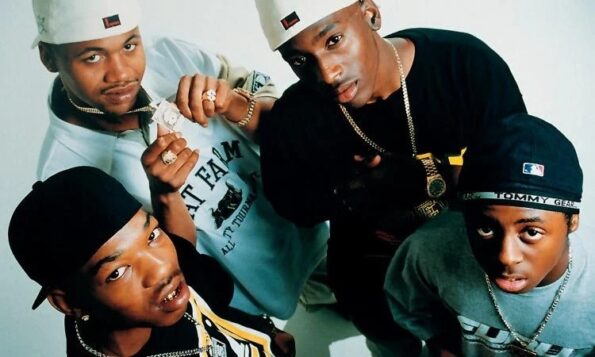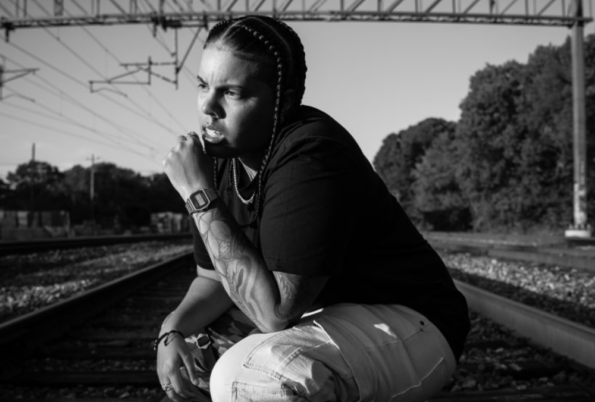After six years, Sam Hunt finally released his second album and was eager to tour — but now, the coronavirus is affecting his long-awaited return to the road.
In the days leading up to the release of Sam Hunt’s highly anticipated second album, the singer was on the phone with his team every day, discussing logistics. “Most of the plans that we’ve made, we’ve had to press pause on because things have gotten progressively worse,” says Hunt in reference to the coronavirus pandemic. (Those plans included an album release party in Las Vegas intended to follow the since-canceled Academy of Country Music Awards.) He says they were constantly brainstorming ways to connect with fans while practicing social distancing and trying to create more online content than they normally would around a record. Even so, Hunt assures: “People are at home on their phones entertaining themselves with music and videos — it’s a perfect time to release an album.”
His fans are certainly used to waiting. Just two months ago, Hunt, 35, started a promotion cycle for his long-awaited second album, Southside (MCA Nashville), which debuted at No. 1 on Billboard’s Top Country Albums chart following its April 3 release. He was eager to spend his summer touring amphitheaters (his first outing in three years), but due to the pandemic, he and his fans are having to wait even longer as the tour’s kickoff date was rescheduled from May to June to July — at least for now. “Everything can change day to day, week to week, so we’ll see,” says Hunt. “It’s crazy, but it’s one of those things that you can’t control.”
When Hunt released his cutting-edge debut, Montevallo, in 2014, it established the then-newcomer as a fresh voice in country music because of how he incorporated hip-hop influences and polished pop production into his vivid storytelling. The album hit No. 3 on the Billboard 200 while four of its tracks became Country Airplay chart-toppers. Three years later, when Hunt released “Body Like a Back Road,” he soared even higher; with a singalong chorus and a finger-snapping beat that recalled a mix of melodic rap productions, the song reached No. 6 on the Billboard Hot 100. It also landed atop Hot Country Songs for a then-record-setting 34 weeks and became a setlist staple on his 15 in a 30 Tour that year.
Yet at a moment when anticipation for a new Hunt album had reached a fever pitch, the Georgia native largely retreated from the spotlight. He married his longtime partner (who inspired much of his debut album), Hannah Lee Fowler, and the two now live in a cabin just outside of Nashville. He put touring, and even songwriting, on hold. “When I set out to make the first record, it was just me, and I was trying to figure out how to put a record out that people would react to and I could] hopefully tour,” says Hunt. “But as it grew, there definitely was pressure to have commercial success and to write the type of songs that are going to allow you to continue at the same rate.”
It wasn’t until the fall of 2018, once he reteamed with his songwriting partners Josh Osborne, Luke Laird and Shane McAnally, that Hunt says he finally felt inspired again and got “in the zone.” But a year later, as Hunt was gearing up for a strong start to the new year after turning in his finished album, he inadvertently found himself in the spotlight earlier than expected due to a DUI arrest, which he now calls a “learning experience.” At the top of 2020 though, he signaled he was ready to pick up his career where he had left off with a performance on Dick Clark’s New Year’s Rockin’ Eve With Ryan Seacrest, for which he sang “Kinfolks,” his first Country Airplay chart-topper since “Body Like a Back Road.”
Looking back, Hunt says taking such a lengthy break “didn’t help” when it came time to start writing again: “Songwriting is like playing a sport; if you take time off, you’re going to be rusty when you come back.” It’s likely why he’s now even more eager to get back on the road. As originally announced, the tour was set to include special guests Kip Moore, Travis Denning, ERNEST and a DJ set by Brandi Cyrus. Hunt first toured with labelmate and fellow Georgia native Moore in 2014, and Moore says they share the same spirit when it comes to life in this industry. “He has never gotten caught up in the hype around him. He has always stayed grounded, and I love that about him,” says Moore. “Hopefully, there’s a lot of levity once the pandemic] has come to a halt.”
When Hunt’s upcoming tour does begin, he and his team are reconsidering aspects that were once considered the norm, such as fan meet-and-greets, and he says it’s hard to speculate what the live industry — and the world — will look like in the coming months. “We’re all waiting to see what happens next,” says Hunt. “There are bigger fish to fry than trying to figure out how to get our music to people.”
Planning Ahead During a Pandemic
Sam Hunt’s longtime manager, Brad Belanger of Homestead/Red Light Management, details the decision to postpone Hunt’s Southside Summer Tour and shares advice for managers during this unprecedented time.
How was the decision to reschedule Hunt’s tour handled?
We got word early on from Darin Murphy at Creative Artists Agency] and Brian O’Connell at Live Nation] that things were going to lock down fairly soon and these shows were likely going to be postponed or canceled. We acted quickly to find real estate in the late summer/fall to move these dates so we wouldn’t have to cancel.
How involved was Hunt in that decision?
Sam has final say on all decisions, but the writing was on the wall and we knew there was no choice but to postpone.
Has there been talk of pushing back additional dates if needed?
We’ve definitely discussed every option and contingency plan, but nothing definite has been decided.
With so many tours having to be rescheduled, what is that process like at a time like this?
The main challenge is real estate. Dozens of other acts are trying to move dates to the same venues/markets, so finding the right space to move three to four shows on a weekend can be difficult. The level of uncertainty is enormous and humbling; we literally just have to sit at home and wait for this all to clear. We prepare for the day that it passes and we can get back to work — whenever that might be.
What advice do you have for other managers currently in the same boat?
Keep your head up, and keep working on something/anything. This will all pass, and we need to be sharp for game day.
This article originally appeared in the April 25, 2020 issue of Billboard.



